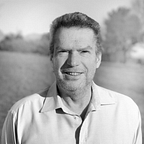When you snooze, you lose
“Success is never owned. It’s rented and rent is due every day” (Anon)
In 1947, the transistor was invented by Bell Laboratories, the research arm of AT&T. Almost immediately, it could be seen that the transistor would replace the bulkier, more expensive and less reliable vacuum tubes that, at that time, were the key components in any radio or television set. Of importance and rather strangely, nobody did anything about it — at least not in the United States of America. The leading USA manufacturers were proud of their Super Heterodyne radio sets, which were the ultimate in craftsmanship and quality. These manufacturers announced that, while they were looking at the transistor, it “would not be ready” until “some time around 1970”.
At that time, Sony was practically unknown outside Japan and was not even involved in consumer electronics, but Sony’s president, Akio Morita, saw the potential of the transistor and quietly bought a licence from Bell Laboratories to use the transistor for a ridiculous sum of US$ 25 000. Within two years, Sony produced the first portable transistor radio — an inexpensive model that weighed only one-fifth as much as a comparable vacuum tube radio. With prices that were only one-third that of vacuum tube radios, Sony captured almost the entire USA market for cheap radios by the early 1950’s and, within five years, the Japanese had captured the world market as well (Source: Five Secrets to Personal Productivity).
This disruption of the radio and television manufacturing sector was caused, in part, by consumers who needed lighter, more portable and cheaper appliances, but more significantly, through an unchallenged “belief” or “picture” that resided in the minds of the vacuum tube manufacturers: “Our radios are the best and our customers are satisfied”. This false picture led to complacency initially, but ultimately to irrelevance within a few years.
The pictures that we have in our minds are beliefs — beliefs that are formed over time. These beliefs guide our behaviour and subsequent results. When these beliefs are less than accurate, we tend to put our energy into activities that don’t lead to required results. In the transistor story above, the belief that they were the best led the manufacturers to inactivity and resting on their laurels. The Sony president, however, envisioned the future of the transistor and followed up with behaviour that led to success.
Kurt Hanks, Gerreld L Pulsipher and David Pulsipher (Five Secrets to Personal Productivity) note the following four foundational needs for business as a whole:
- The need for viability through security within the business environment — ranging from assets, property, trusted human resources to their intellectual property.
- Respect — including being perceived for quality, customer service excellence and a reputation of competence. Respect for the brand is all important.
- Competitive impact — a reason for people to buy its goods or services. This is closely related to the concept of market niche.
- The need for innovation and creativity — these encourage growth and progression. Businesses that stand still are soon passed by the competition.
All business leaders and lower-level managers need mental “prods” constantly for their beliefs to be challenged. Unchallenged pictures lead to bad decision-making processes and less than optimal results. The important job of the coach, mentor, consultant or strategist cannot be over-emphasised here — their very role provides opportunity for stretch: “Am I working from the right picture in my mind? Is any of my thinking limiting growth? Am I missing some important pieces of information that may lead me to different conclusions?” Blinkering success with the assumption that it will last forever is naïve — celebrate success momentarily, then get on with the job of discovering the changes needed to ensure success in the future.
When you snooze, you lose! The leader’s mental window should not be frosted over by layers of false beliefs and delusional pride but should rather be transformed continuously to enable clearer vision and more accurate pictures of consumer preferences.
Originally published at https://www.stretchforgrowth.com on September 5, 2021.
